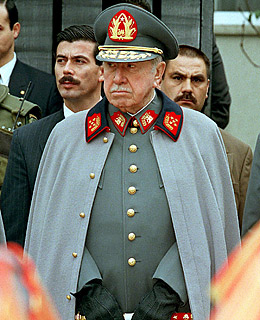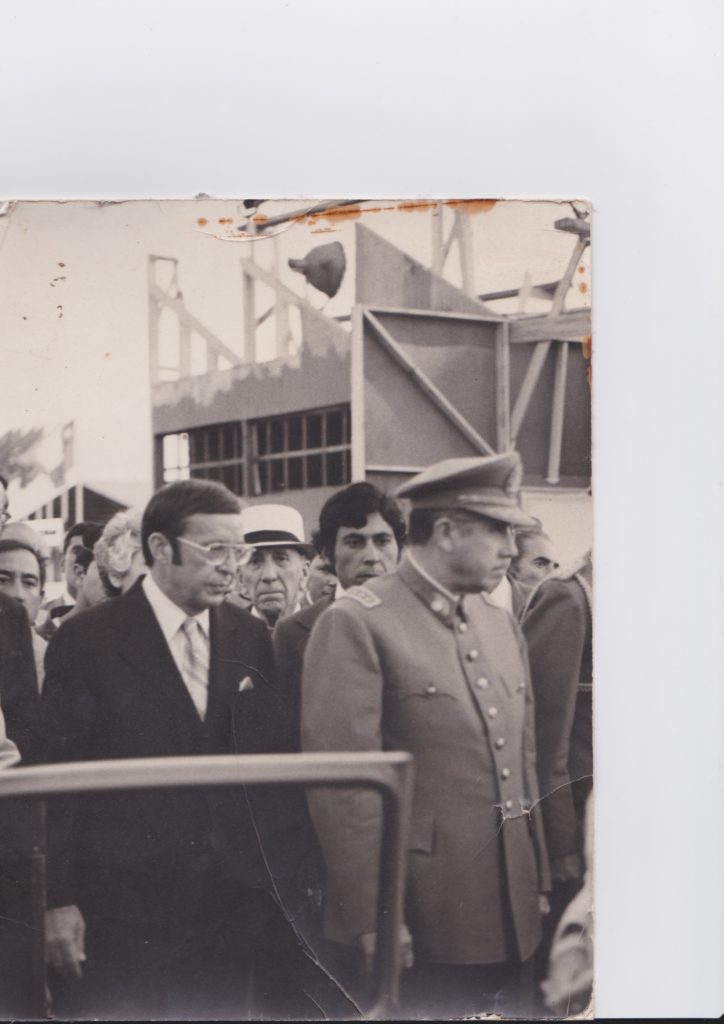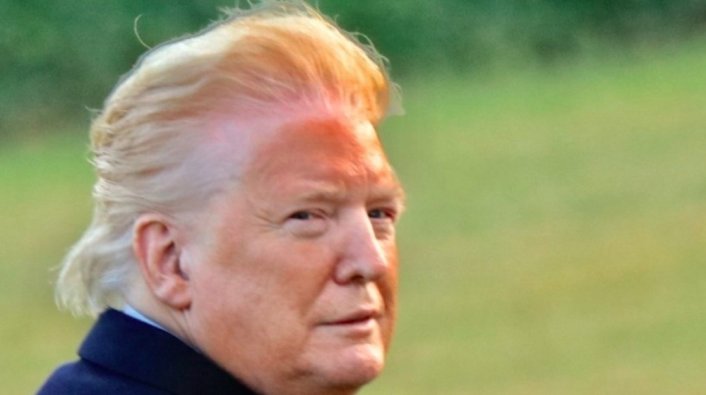(With Kate Nicholls)
Presidential elections were held in Venezuela on July 28th, delivering an apparent victory for the Opposition headed by Edmundo Gonzalez of the Unitary Democratic Platform (PUD) but a declared victory for incumbent Nicolás Maduro of the United Socialist Party of Venezuela (PSUV). Gonzales was the hand-picked successor to businesswoman Maria Corina Machado, who was banned from running for president in the build-up to the election and who remains the power behind the PUD throne. Nicolas Maduro is the heir of Hugo Chavez’s “Bolivarian” legacy, something that sparked a resurgence amongst Latin American leftist movements at the turn of the 21st century but which has lost its promise and backtracked into decline and decay in the decades since then.
The election was held in the context of widespread claims and considerable evidence of electoral intimidation and fraud, against a backdrop of various restrictions on civil and political liberties, so the legitimacy of the declared outcome has been questioned from within Venezuela as well as abroad. In fact, wide-spread violent protests have broken out since the results were announced, and the possibility of civil war cannot be discounted as more evidence emerges that the election may have in fact been stolen by Maduro and his supporters. It remains to be seen whether he will remain power or face a coup, a domestic civil uprising, an escalation in regional or foreign intervention, or some combination thereof.
As even a causal observer will note, Venezuelan society has become especially polarized since the rise of former coup-monger Hugo Chávez to power in the 1990s (Chavez led two attempted coups before finally gaining power via electoral means). This polarization is not limited to Venezuelan partisan politics. Its echoes are heard as far away as New Zealand and elsewhere. Progressive left voices in particular, on social media and the blogosphere, are supportive of Maduro’s win, reject claims of electoral intimidation and fraud as right-wing disinformation, and highlight the potential for United States involvement should any coup eventuate. This championing of the Chávez-Maduro Bolivarian regime by the left is not new: Chávez’s brand of nationalist-Indigenous populism (cast as indigenous socialism) and its resistance to United States influence in Latin America gained much international attention in the early 2000s and continues to be supported today. For much of the Left in NZ and elsewhere, then and now, the historical sins of the US far outweigh the current crimes of contemporary Left authoritarians, Maduro included. For their part, Western media outlets see Maduro as a tin-pot dictator hell-bent on holding power at all costs, continuing in a long line of bad Leftist henchmen that extends back to Castro, Lenin, Mao and Stalin.
This framing poses a dilemma for political scientists. The discipline tends to prioritise regime type over left-right politics. That is to say, the discipline’s ideological preference is for democracy over dictatorship rather than the policy content of either type of regime. This is an obvious normative bias, one that is readily defended due to the fact that, despite all its limitations and contemporary flaws, empirically democracy does a better job at protecting basic human rights than any other regime type. The balance on how this is achieved (say, between individual and collective rights and responsibilities and between economic freedom, opportunity and equality) then becomes the stuff of quantitative and qualitative positive (objective) micro-analytic analyses rather than normative macro-analytic preferences. That allows political scientists to distinguish between specific types of dictatorship and democracy based on organisational features, public policies and socio-economic outcomes, including variants such as military-bureaucratic versus populist authoritarianism or social versus liberal democracy (which is also why political scientists can get very pedantic when words like “fascist” and “communist” are thrown around as epithets by mindless pundits).
The current situation in Venezuela underscores this dilemma all too well: from a democratic standpoint there is no comfortable way to back a winner given the nature of both sides, and the true loser in the game is likely democracy as an regime type and an ideal. Let’s examine why.
First, the Bolivarian regime. What began as a model for the “Pink Tide” of electoral socialism in Latin America in the late 1990s has devolved into a left-leaning nationalist populist authoritarian kleptocracy characterised by nepotism, corruption and incompetence. An increasingly shaky cadre of state managers, military leaders and Nicolas Maduro loyalists have stripped the country’s coffers nearly bare while allowing critical infrastructure to decay, including in the all-important oil sector. As a result, health, education and welfare indicators (including basics such as provision of transportation and potable water) have dropped precipitously while poverty, unemployment and crime rates have spiked (a general assessment is provided here). Inflation is running at 130,000 percent per year, rendering the Venezuelan Bolivar worthless as a token of financial exchange. 8 million Venezuelans have migrated abroad, and the Venezuelan State has been hollowed out by bureaucratic parasitism and partisan agency take-overs and patronage. The result is country that has seen its GDP drop a staggering 80 percent in the decade since Maduro succeeded Chavez, even with considerable financial and material support from sympathetic foreign partners such as Cuba, Iran, the PRC and Russia. Truth be told, the country is ruled by thieves posing as anti-imperialist revolutionaries. In this they resemble Daniel Ortega’s Nicaragua or Putin’s Russia more than post-Castro Cuba or Xi Jin-ping’s PRC. In short, the situation is dire. Under Maduro Venezuela has become a failed State.
The curse of Venezuela is that the PUD-led opposition is not a choirboy’s convention either. Besides the failed 2002 coup against Chavez and the 2018 drone attack against Maduro during a parade and its member’s history of dubious commitment to democratic practice (Gonzalez’s admirable personal traits as an academic and diplomat as well as his middle class roots notwithstanding), the current opposition has significant ties to Venezuelan ex-pats linked to rightwing Cuban and Nicaraguan exiles, who in turn have attracted the support of conservative groups in the US and other Latin American countries (some of which have connections to the military and oligarchical dictatorships of the 1980s and 1990s as well as contemporary political figures like Jair Bolsonaro in Brazil and Javier Millei in Argentina). Machado has been courted by and has extensive links to very conservative foreign actors, especially those in the US, for two decades. She also has direct social links to the pre-Boliviarian oligarchical past, as her parents were wealthy members of the old elite. For all of their talk of “democracy” and “freedom” and the gloss of respectability offered by Gonzalez, the unifying feature of the Venezuelan opposition led from behind by Machado is more about retribution and roll-back wrapped in a nostalgic vision of the pre-Boliviarian past and a desire to return the country to the old, albeit re-branded status quo. For all the public discontent about Maduro’s government, that is a non-starter.
For the PUD-led opposition the trouble is that, much like Cuba after the revolution, Venezuela is different for having undergone the Bolivarian experiment, especially when it comes to socio-economic and racial hierarchies. It therefore will not easily return to a past that was not always good for everyone. It is no longer the country of plastic surgery beauty queens, cheap petrol and affordable Scotch whisky for those who lived in the affluent Eastern Caracas foothill suburbs because if nothing else, economic and social decline and outward migration have made for a great leveller in Venezuelan society. In other words, the opposition yearns for a return to a political, social and economic status quo that no longer exists and which will be impossible to return to even if Maduro is forced from power. More importantly, a return to the pre-Bolivarian past is not only unrealistic, it is undesirable.
That is because Venezuela was no shining example of liberal democracy before the rise of Chávez. It is true, underpinned partly by the benefits of oil wealth, that it was one of the most stable polities in Latin America for much of the late twentieth century. The country did not experience the same pattern of populist authoritarianism and military rule that occurred in countries such as Chile, Brazil, or Argentina, or the kind of guerilla and para-military led violence that occurred in neighbouring Colombia or in Central America. Instead, the election-based two party-dominant regime that ruled Venezuela from 1958 until the late 1990s was what comparative politics specialists refer to as a limited, oligarchical or restricted democracy. The spoils of oil wealth and benefits of close ties with the United States were shared between two elite-backed political parties that allowed for relatively free elections, rotation in government office and key interest group cooptation via material incentives for favoured organisations. But that arrangement purposely left little room for truly leftist or authentic working class representation, thereby overseeing and perpetuating deep-seated socio-economic inequalities. Cheap fuel and commodity imports subsidized by taxes on primary (mostly petroleum) exports served as the opiate of the masses that maintained social peace. But as years passed after the 1958 tripartite agreement that founded the modern Venezuelan Republic (the Pact de Punto Fijo), the elite compact eventually turned into an increasingly distant and corrupt political duopoly unresponsive to popular demands for change, leading to outbreaks of protest and even episodic guerrilla violence.
Attuned to this discontent, Army officer Hugo Chavez led abortive “colonel’s coups” in the 1990s that paved the way for his eventually successful run for the presidency in 1999. His campaign was staunchly anti-elitist, anti-imperialist and redistributionist, with major state agencies expanded or granted control over previously private agencies. That contributed to the rise of the indigenous-socialist movement that came to be known as Bolivarianism and which continued after the eventual transfer of power from Chavez to Maduro (Chavez’s vice-president and former union leader) upon the former’s death in 2014. The trouble is that Chavez and his Bolivarian cohorts’ managerial skills did not match their ideological ambitions, and after much public spending at home and abroad–something that did lift basic domestic socioeconomic indicators and forged international solidarity links with foreign anti-Western regimes for the first ten years of the Bolivarian experiment–the wheels began to come off the Venezuelan cart. Graft crept into the public sector while investment declined and public spending continued unchecked even as it was increasingly untethered from hard currency earnings. The Boliviarians began to emulate their predecessors when it came to bourgeois lifestyles, the main difference being that they preferred to wear khakis and red berets rather than Liki likis, guayaberas and flowered polleras.
Occasional observers of Latin American politics tend to blame much of the region’s history of political instability, especially when it comes to worldwide attention-grabbing events such as military coups or foreign interference, especially on the part of the United States. While it is historically undeniable that the United States has supported various dictators in their rise to power, and withdrawn support when this no longer seems of benefit or, in true neo-colonial fashion, opposed revolutionary movements wherever they arose, other factors including political polarisation, democratic backsliding, bureaucratic corruption and military intervention cannot solely be explained by external factors. Domestic forces of one kind or another always play a role: from the problems of policy deadlock associated with forms of government that combine presidentialism with multi-party legislatures, to the failure to instil cultures of accountability and transparency in private and public institutions, to deeply ingrained social and racial hierarchies underpinned by institutional legacies, to historical patterns of land ownership and other forms of commercial exchange, and more.
That said, foreign involvement, if not outright intervention, is already an element in the politics surrounding the Venezuelan presidential election. Cuba has sent para-military advisors to bolster the Maduro regime by helping organise the violent “colectivos” of armed young men intimidating election workers and demonstrators.These are modelled on the Cuban “turbas divinas” mobs that emerge as counters to episodic protests on the island. Hezbollah (and Iran) has had a decades-long presence in Bolivarian Venezuela, providing a criminal-ideological nexus that triangulates weapons, drugs and money smuggling activities that extend from the Levant to the Tri-border region of Argentina, Brazil and Paraguay and which launder criminal as well as ideological assets under the protection of the Bolivarian State. More recently, Wagner Group mercenaries have appeared as part of Maduro’s personal guard, essentially playing the role of foreign praetorians for the besieged leader. It is a sign of his insecurity and lack of trust in his own forces that he now depends on the protection of these Russian proxies.
But the Opposition is in no real position to remove Maduro on is own even if it has the material, political and logistical support of foreign agencies. Hence, given the disarray in post-election civilian politics, and the inability of the PUD to dislodge the Maduro regime by weight of popular sentiment (and votes), it will be left to the Venezuelan military to ultimately determine the outcome of the current crisis. However, the Venezuelan military is not monolithic and is rendered by cronyism and corruption. Guarantees will have to be made and assurances given if military support for regime change is to occur (which will likely involve immunity from prosecution for graft and other acts of official malfeasance). Otherwise, the default option is to repress, which remains as a default because it is highly unlikely that any external forces (including the US) will overtly intervene in the event Maduro’s forces dig in and crack down on dissent. That sets the stage for more covert forms of subterfuge and grey area machinations, which will only prolong the impasse even if in somewhat sublimated fashion. And we can rest assured that these covert options are already being explored by various interested parties.
Whatever the eventual outcome, it will involve foreign actors supporting each side as well as soft-and hardliners in the PUD and PSUV ranks. In that light Maduro is at best just one rock in the road to a peaceful transition. At worst, he is now a pawn in a larger game that is beyond his control. In that light it is others with skin in the game that now matter most, and that includes the armed forces and foreign actors aligned on opposing sides of the Venezuelan political divide.
In terms of potential transition scenarios, the best that can be hoped for is the formation of a unity government made up of moderate elements of the outgoing regime and Opposition who commit to a military or perhaps internationally-overseen transition project leading to “restorative” elections down the road. The transition would focus on erecting an acceptable framework for political contestation while revitalising critical infrastructure, attracting investment and cushioning the dislocating effects of the economic crisis via promulgation of foreign aid-supported safety net programs for the most disadvantaged. All of that means that a variety of foreign interlocutors will need to be engaged on multiple policy fronts, starting with the political negotiations over procedures and paths forward and then moving onto substantive discussions about economic and social recovery planning. The Organisation of American States (OAS) may prove helpful in this regard even if its criticism of the Maduro regime has seen its representation at the election curtailed and stonewalled.
Returning to the political science angle, one way to envision the process is as a type of stylised multi-actor “game” in which the objective is to restore an open democracy to Venezuela. Any peaceful transition scenario to this end assumes that longer-sighted moderates will dominate negotiations on both sides of the domestic crisis and that their respective foreign backers will support such moderation over hard-line entrenchment and ongoing confrontation. That is a very big ask given the deep animosities extant between the adversaries. Again, the Venezuelan military will become a major focus of pressure from all sides, and it will ultimately be them who give the nod one way or the other. That is because the Venezuelan armed forces have one thing that no other stakeholder has: veto power over what is agreed to.
In a sense, the Venezuelan transition “game” boils down to a choice of lesser evil. That is true for Venezuelan society as a whole but especially true for the military as veto welders over the entire post-election process. Does the military choose the evil that it knows and which feeds it while continuing as the defenders of a failed State propped by like-minded foreign authoritarians, or does it take a step into the unknown and go with a side that has very patchy democratic credentials, very dubious foreign rightwing connections, but which is popular and represents the possibility of national recovery and renewal? Is continuity or change the better option, both for the military as an institution and for the nation as a whole?
Which is to say that there is much yet to happen before the Venezuelan crisis is resolved, peacefully or not. Or in antiseptic political science terms, the transitional “game” has moved from iterative (outcomes do not change with each successive play) to extensive-form in nature (outcomes change with each play), with the ultimate “foundational” conclusion leading to the next Venezuelan regime being uncertain and not necessarily Pareto (both sides advance their interests without hurting the other, leading to mutual second-best outcomes), much less Nash-optimal (both sides achieve preferred goals) for all concerned. That is to say, negotiations between and within the competing political blocs are not so much about immediate choices and outcomes but about setting the terms and conditions for an eventual resolution to the political impasse on terms that may not be the preferred result for anyone but which are mutually acceptable given the circumstances. It could even be a Pacto de Punto Fijo 2.0 moment, one that could be considered as a historical referent for current negotiations. It may seem like over-intellectualised gibberish to phrase things this way, but there is a core truth in this parsing of words that the principals involved may want to heed.





